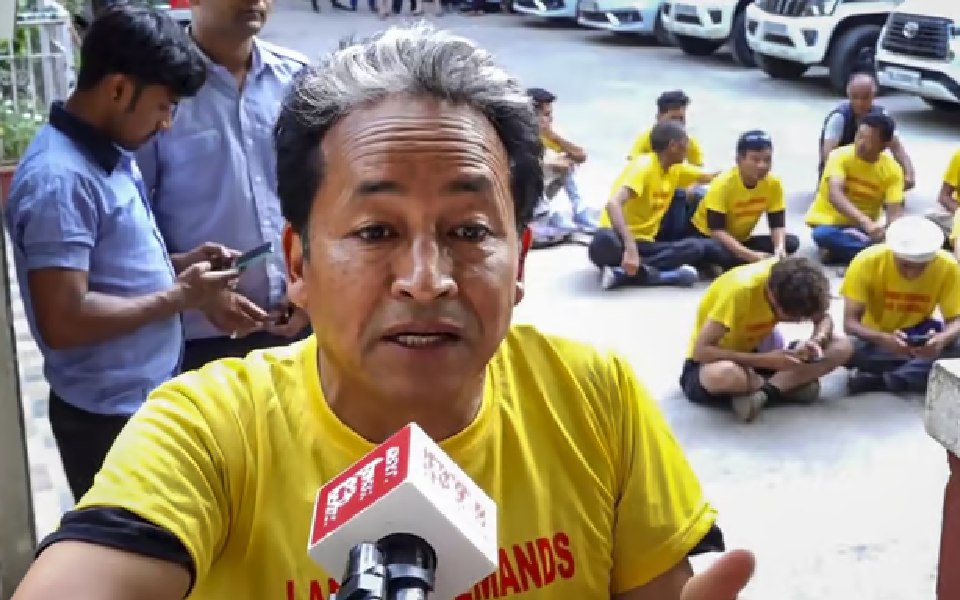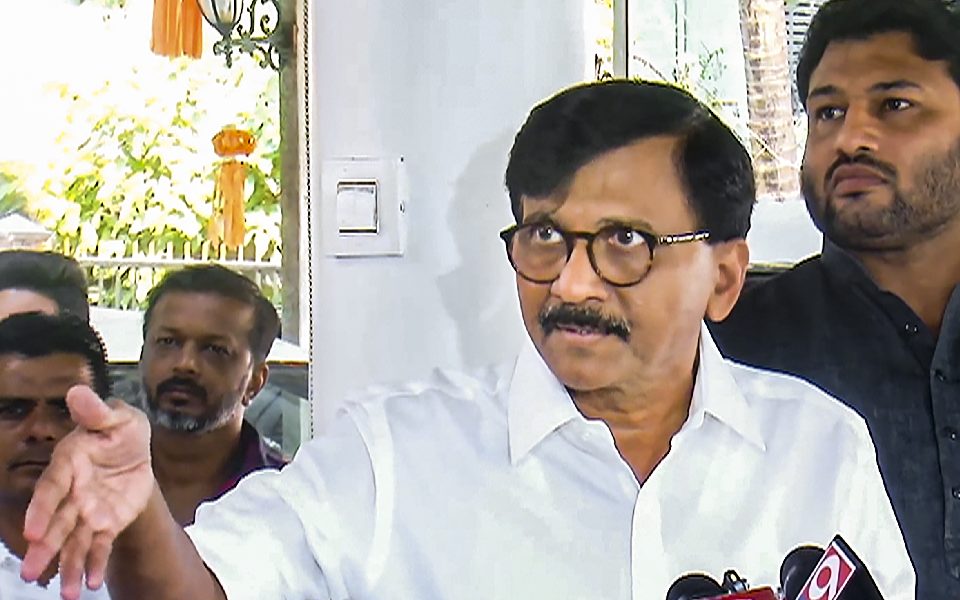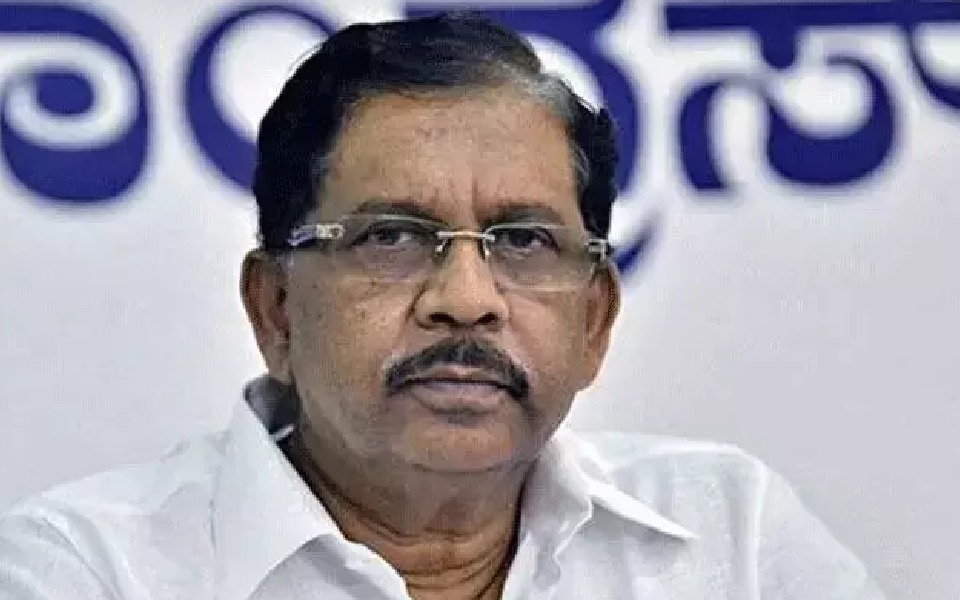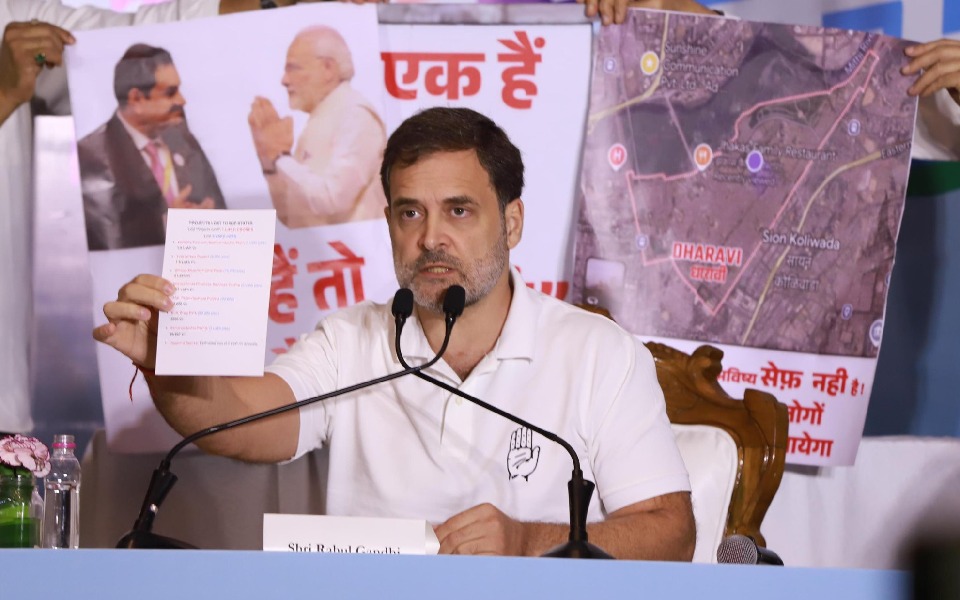New Delhi, Oct 20: Climate activist Sonam Wangchuk along with his supporters continued their fast for the 15th day on Sunday. Several others who wanted to join the group for a 'maun vrat' (vow of silence) were not allowed to assemble and were detained by the Delhi Police.
Heavy barricading was done around Delhi's Ladakh Bhawan where the activist is sitting on an indefinite fast.
Wangchuk, in a post on X, said it is a "maun vrat' and not a protest.
"Please understand. It's a moun vrat not a protest call," Wangchuk said in his post.
"It's sad to see that our call for a silent fast or Moun Vrat this Sunday has been presented as a Protest Call by some elements. Please understand we are calling for a peaceful upvaas in support of our own future," he said.
"On this eco-upvaas please abstain not only from food but also from mindless consumerism. Please use minimum electricity, water, machines, plastic etc," he added.
The activist had called upon people to observe a day long fast on Sunday, where they give up on consumerism to save the environment.
Wangchuk also urged people in Delhi to join him at Ladakh Bhawan on Sunday for a 'maun vrat' for saving Himalayas and the environment.
Around 25 people from Ladakh have been sitting on an indefinite hunger strike at Delhi's Ladakh Bhawan since October 6, demanding a meeting with top leadership, including Prime Minister Narendra Modi, to discuss their demands.
Wangchuk with his supporters marched to Delhi from Leh demanding the inclusion of Ladakh in the sixth schedule Constitution, which he said would enable locals to participate in decision-making and conserving the environment in the eco-sensitive Ladakh.
They were detained at the national capital's Singhu border on September 30 by Delhi Police and released on the night of October 2.
The sixth schedule of the Constitution includes provisions for the administration of tribal areas in the states of Assam, Meghalaya, Tripura and Mizoram in northeast India. It establishes autonomous councils that have legislative, judicial, executive and financial powers to independently govern these areas.
The protesters are also demanding statehood, a public service commission for Ladakh and separate Lok Sabha seats for Leh and Kargil districts.
The march to Delhi was organised by the Leh Apex Body, which along with the Kargil Democratic Alliance, has been spearheading the agitation.
PLEASE UNDERSTAND
— Sonam Wangchuk (@Wangchuk66) October 20, 2024
IT'S A MOUN VRAT NOT A PROTEST CALL
It's sad to see that our call for a silent fast or Moun Vrat this Sunday has been presented as a Protest Call by some elements. Please understand we are calling for a peaceful upvaas in support of our own future...…
Let the Truth be known. If you read VB and like VB, please be a VB Supporter and Help us deliver the Truth to one and all.
Mumbai, Nov 25: Shiv Sena (UBT) MP Sanjay Raut on Monday demanded a re-election in Maharashtra using ballot papers, claiming there were irregularities with the electronic voting machines (EVMs).
Talking to reporters, Raut alleged several complaints about EVMs malfunctioning and questioned the integrity of the recently held elections.
The BJP-led Mahayuti won 230 out of 288 seats in the assembly elections, while the opposition Maha Vikas Aghadi managed 46 seats, with Shiv Sena (UBT) winning just 20 out of 95 seats it contested.
"We have received nearly 450 complaints regarding EVMs. Despite raising objections repeatedly, no action has been taken on these issues. How can we say these elections were conducted fairly? Hence, I demand that the results be set aside and elections be held again using ballot papers," Raut said.
Citing some instances, he said a candidate in Nashik reportedly received only four votes despite having 65 votes from his family, while in Dombivli, discrepancies were found in EVM tallies, and election officials refused to acknowledge the objections.
The Sena (UBT) leader also questioned the credibility of the landslide victories of some candidates, saying, "What revolutionary work have they done to receive more than 1.5 lakh votes? Even leaders who recently switched parties have become MLAs. This raises suspicions. For the first time, a senior leader like Sharad Pawar has expressed doubts about EVMs, which cannot be ignored."
Asked about the MVA's poor performance in the elections, Raut rejected the idea of blaming a single individual.
"We fought as a united MVA. Even a leader like Sharad Pawar, who commands immense respect in Maharashtra, faced defeat. This shows that we need to analyse the reasons behind the failure. One of the reasons is EVM irregularities and the misuse of the system, unconstitutional practices, and even judicial decisions left unresolved by Justice Chandrachud," he said.
Raut stressed that though internal differences might have existed within the MVA, the failure was collective.
He also accused the Mahayuti of conducting the elections in an unfair manner.
"I cannot call the elections fair given the numerous reports of discrepancies in EVMs, mismatched numbers, and vote irregularities across the state," Raut said.





